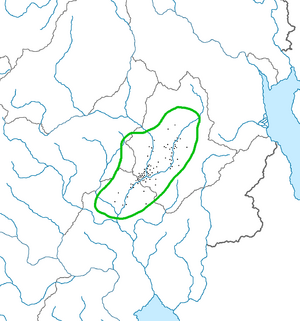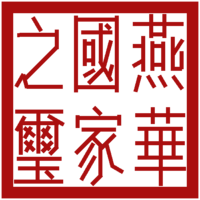Zhong dynasty
This article is incomplete because it is pending further input from participants, or it is a work-in-progress by one author. Please comment on this article's talk page to share your input, comments and questions. Note: To contribute to this article, you may need to seek help from the author(s) of this page. |
Zhong | |||||||||
|---|---|---|---|---|---|---|---|---|---|
| c. late-3500 BCE–c. 2300 BCE | |||||||||
 Proposed location of the Zhong dynasty with known Longcheun culture sites (black). | |||||||||
| Capital | |||||||||
| Government | Elective monarchy | ||||||||
| Emperor | |||||||||
• c. late-3500 PKE | Yeung of Zhong (First) | ||||||||
• c. 2300 BCE | Tong of Zhong (Last) | ||||||||
| History | |||||||||
• Established | c. late-3500 BCE | ||||||||
• Disestablished | c. 2300 BCE | ||||||||
| |||||||||
| Today part of | Yingok | ||||||||
The Zhong Dynasty (Yinese: 鐘朝; Jinping: Zung1 Ziu1; Yinese Hungshui Cambranisation: Jūng Jīu) is the first dynasty in traditional Yinese historiography. It was established by the mythical Yeung of Zhong during the late-4th millennium BCE who united the tribes of the Longcheun river. The Zhong was eventually succeeded by the An Dynasty around 2300 BCE.
No contemporaneous records of the Zhong have been ever uncovered. All information of the dynasty derive from later works from the An and onwards. The earliest mention of the Zhong is found in the Tomb of Gong of An which dates to roughly 2000 BCE. However, much of our current understanding of the Zhong is based off of the An Annals, Book of On, and the Records of History. The existence of the Zhong Dynasty is considered by a sizable portion of the scholarly community as legendary due to the minimal amount of archaeological evidence to its existence, but others identify it with the archaeological Longcheun culture.
According to the chronology based on the An Annals, the Zhong ruled from between 3328 to 2331 BCE. While according to several other sources including the Book of On and Records of History, the Zhong ruled from 3174 to 2247 BCE.
